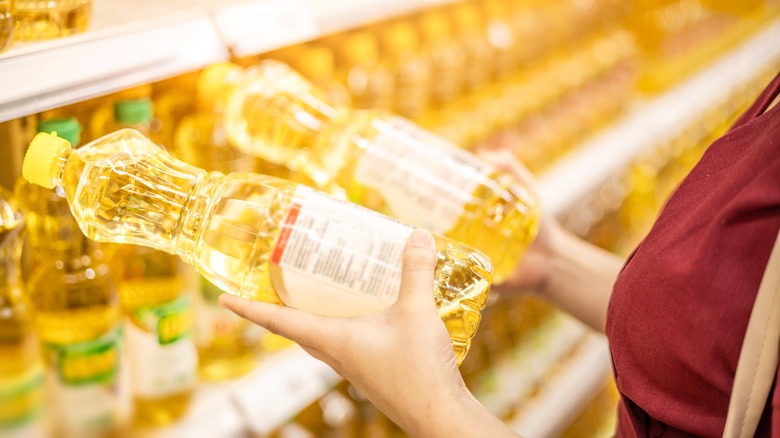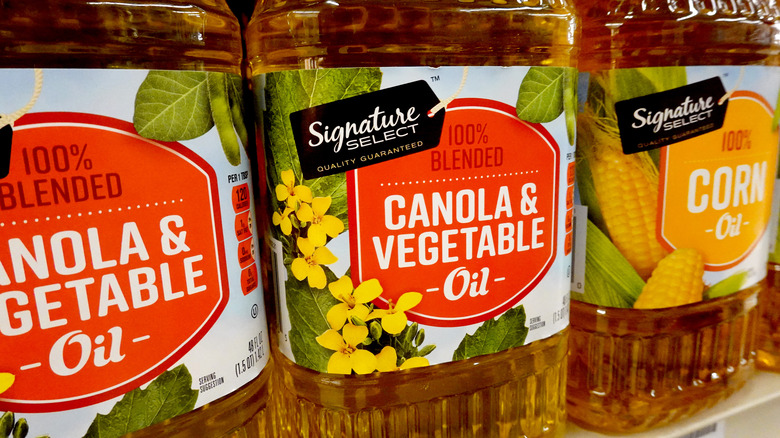Why Some Stores Are Limiting The Amount Of Cooking Oil You Can Buy
For years we've been told that consuming too much fried or processed foods has a negative impact on our health; now it seems that we may have to cut back on cooking with too much oil, but not for the reasons you might believe.
Since Russia's invasion of Ukraine, global supply-chain management experts, like Syracuse University's Patrick Penfield, have been warning that further commodity shortages were on the horizon, particularly since it had come so close on the heels of the coronavirus pandemic. As Penfield told Time, "It's almost like you've been sick for a while, and you're recovering, but then you catch another illness. Unfortunately, it causes everything else in your body to react adversely."
Now we're faced with a shortage of cooking oil triggered by Ukraine's forced absence from the global supply chain. Limits to the number of bottles of cooking oil have been spotted across Europe, from the United Kingdom to Greece, where shoppers are allowed to pick up just one to three bottles of cooking oil each time, per Insider. The Ukraine situation is "causing shortages in some ingredients like sunflower oil and raising the price of substitute ingredients," Kate Halliwell, chief scientific officer at Great Britain's Food and Drink Federation, told The New York Times. "Manufacturers are doing all they can to keep costs down, but inevitably some will have to be passed to consumers."
Shortages are leading to limits on cooking oil
Part of the shortage can be linked to the Russian invasion. Ukraine supplies as much as 46% of the world's supply of sunflower and safflower oil, while Russia produces 23%. With the two producers off the market, grocers are now having to limit sales to ensure shoppers get what they need, per Time.
But war is not the only reason cooking oil supplies are tight. Even before hostilities broke out, the U.N. Food and Agriculture Organization warned that vegetable oil prices were flying at a high, per NPR. The cost of soybean oil has nearly tripled, while the cost of palm oil is up 200%; Indonesia already said it would ban exports of the commodity in order to ensure it had enough for domestic consumption. In some instances, price hikes were driven by low yields, while others were triggered by COVID-related labor problems.
Rationing can be a solution in some instances, but it isn't likely to help, at least for some time. Britain's Food Standards Agency has warned in a statement to The New York Times: "Food businesses are reporting that U.K. supplies of sunflower oil are likely to run out in a few weeks with some businesses already experiencing severe difficulties." In the meantime, The Guardian told consumers to expect "a different mix of cooking oils" to hit the market, as retailers attempt to meet cooking oil demand with supplies of blends such as rapeseed and soy.

